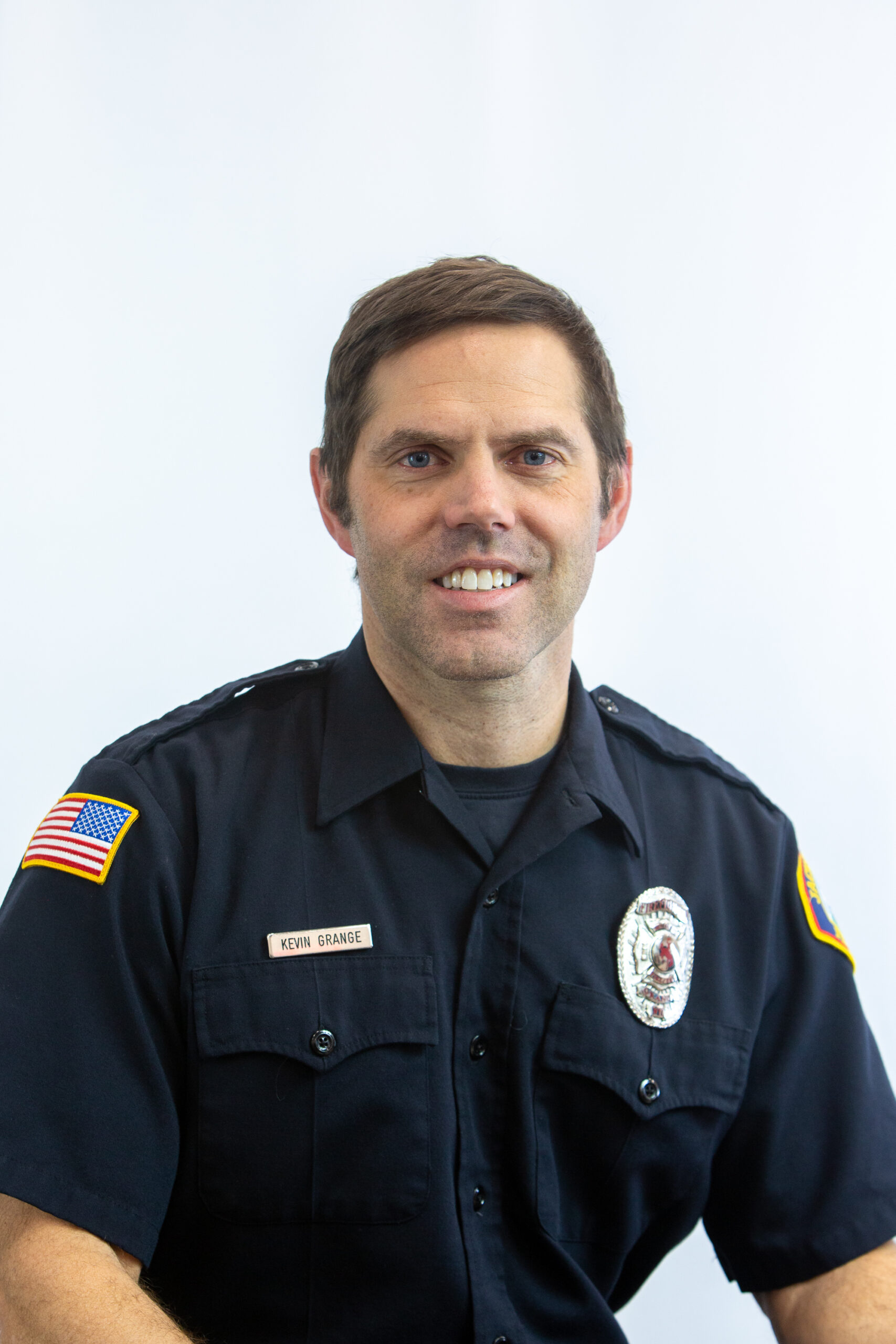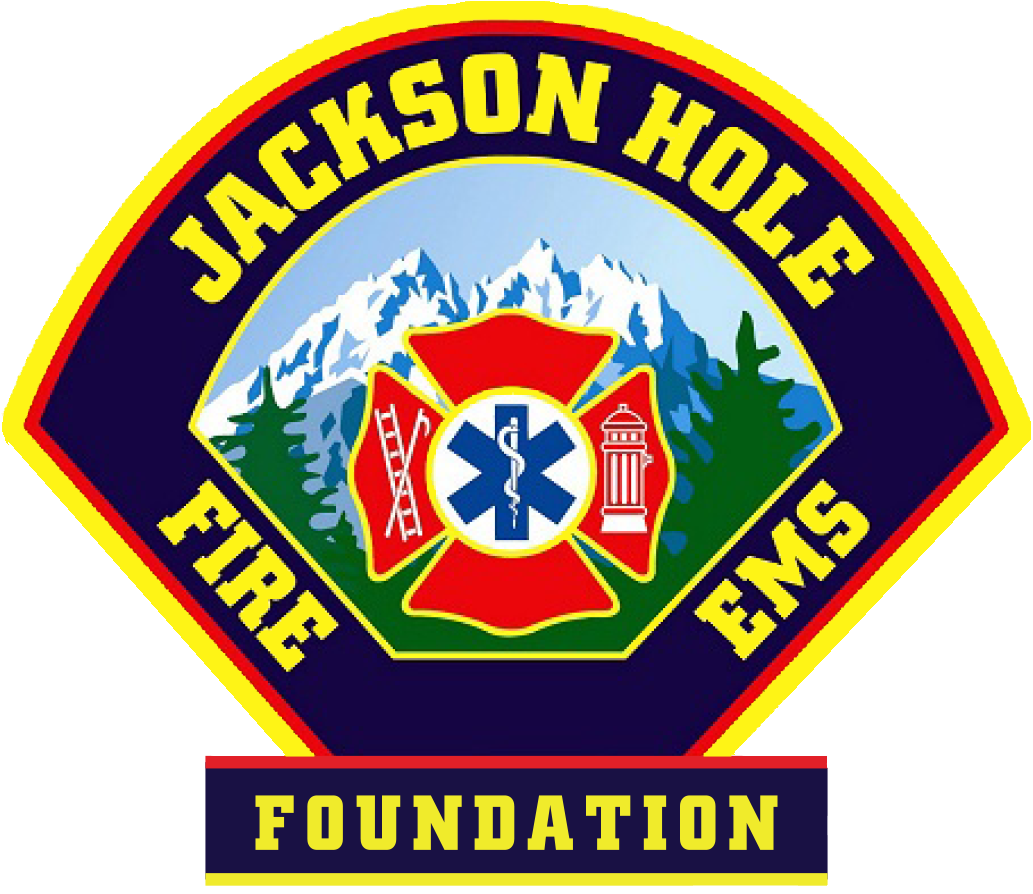
Kevin Grange“…everyone’s just very kind and generous and wants to serve their community.
It sounds cliché, but our people are our greatest asset.”
Kevin Grange
ADO/Paramedic
2015-Present
Where are you from? I was born in Chicago and grew up in New Hampshire.
What is your role in the department? I am an ADO/paramedic with B shift, Station 1.
How long have you been a part of JH Fire/EMS? It’ll be 6 years this week (written 12/10/22).
Did you start as a volunteer or full-time? I started full-time. I was working for the National Parks Service in Yellowstone and I did my fire training through the parks service and just fell in love with Jackson Hole and applied a couple times and then got hired full-time.
What made you want to leave the NPS and join this department? I fell in love with Jackson, but to me, the people we have make the department what it is and that’s why I haven’t left. Volunteers, paid staff, everyone’s amazing and unique; there are a lot of different skill sets and personalities. Above all, everyone’s just very kind and generous and wants to serve their community. It sounds cliche, but our people are our greatest asset. I fell in love with Jackson and the area and the community and I love the all hazards response model that we have. It’s a lot to learn but it also keeps every day different and challenging.
So I know you were working in emergency services before working here. What is your background in medicine? It all started when I was a lifeguard in high school at a water slide park. Then I got my EMT and really loved that. Then I worked a little in Park City for their summer mountain operations. Then I went to paramedic school and I worked on a private ambulance after that, mainly doing interfacility transports. I got hired by the parks service after living in LA. So I worked at Yellowstone, Yosemite, and Grand Teton. And then I ended up in Jackson.
What are your current certs? Firefighter, paramedic, engineer, and then I have a tactical EMT cert through a special class that I took. I also have hazmat ops and fire officer.
What are your future goals in the department? Basically, it’s to always keep learning and growing. I’d like to eventually be captain, and I’d also like to bring a critical care paramedic level of service to Teton County. That’s sort of the new level of care for these mountain towns for critical, high-acuity patients that need to be taken somewhere else.
So I know that you write and that you have published three books, do you have other side gigs? Yeah, so writing, and the only other side gig is teaching Pediatric Advanced Life Support (PALS) and Advanced Cardiac Life Support (ACLS) at St. John’s. How long have you been doing that? About 2 years. It’s awesome; I like the clinical space a lot, and it also keeps me dialed in on my own skills. You don’t know what you know until you try to teach it and then you realize all that you don’t know.
What do you do in your free time? Anything outdoors. I love mountain biking, skiing, and trail running. I think this is kind of unique, but I’m also really into hot yoga. That just helps keep me balanced while dealing with the physical stress of the job and some of the operational stress as well. That’s sort of my addiction, if you will.
What would you say is your favorite part of the job or the most satisfying/rewarding part if that’s the same answer to you? The most satisfying part is working as part of a great team and helping people on the worst day of their lives, and also serving the community. That, and the camaraderie that we have amongst each other.
What advice would you give new recruits? This is advice that I got from my EMT class on the last day of class. The instructor said, ‘the moment you leave this classroom, you begin forgetting this knowledge.’ We’re always in a process of forgetting what we’ve learned on fire and EMS, so to combat that, it’s vital to keep in mind the importance of training all the time. Especially on the EMS side of things, like with EMT-I and Paramedic: unless you review a lot of this stuff, you’re going to miss it at like three in the morning when you get a weird presentation of a pulmonary embolism.
Is there anything you wish you had known when starting? Not really. I mean I was pretty old when I started. I think it’s really important to pick good mentors. Find people who you admire and soak up all their knowledge. I feel like I did that pretty well. If I could tell myself or a young recruit something, it would be to consciously pick who your mentors are.
Who is your mentor in the department? I would say that I look up to our whole leadership, but I guess I was with Captain Carr the longest, for four and a half years, and he really demonstrated what it means to be an all hazards responder and to serve the community, to be a great leader, and to balance a lot of different tasks and trainings.
What would you say is the most important skill or trait for someone to have in this line of work? The ability to adapt and overcome. The job is always throwing you challenges and surprises, so if you have that mindset: to be able to improvise and be creative, then that’s one of the keys to success. I personally would pick that over a cert. If someone has the right personality and can just kind of get it done, then that’s more important to me than someone who has more certs but without the personality.
What do you think you bring to the department? I hope I bring positivity and professionalism, and I’m obviously very grounded and strong in EMS; that’s my main interest. I also would say that I have very good relationships with both the paid and the volunteer folks.
